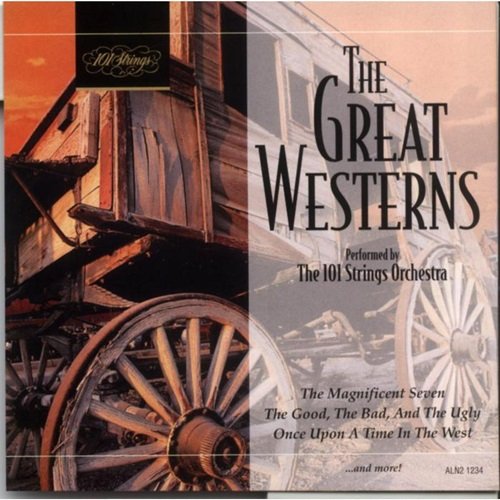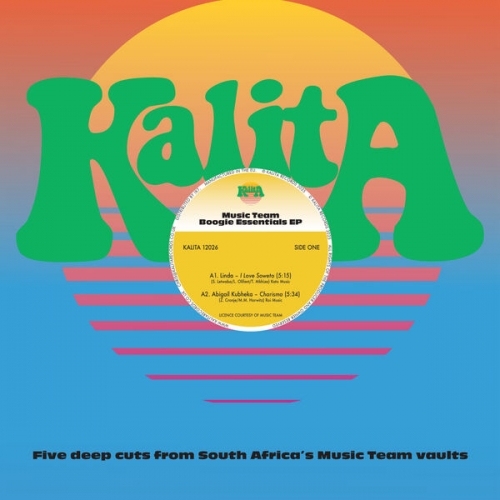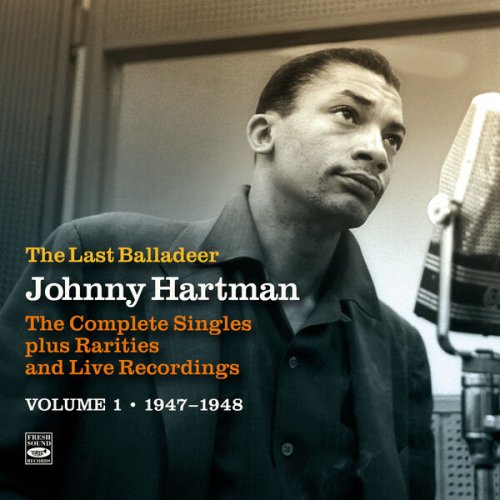Max Pommer - Handel: Die Wahl des Herakles (The Choice of Hercules) (1992)
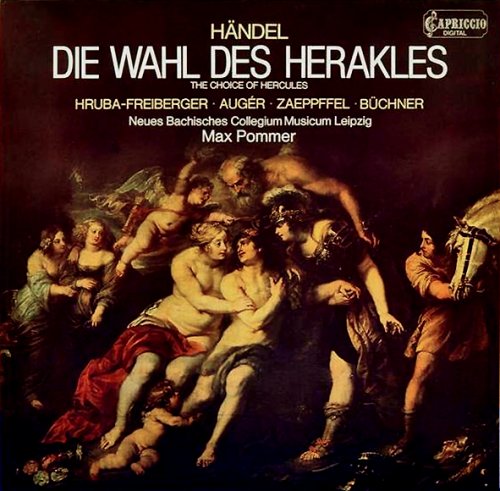
Artist: Max Pommer
Title: Handel: Die Wahl des Herakles (The Choice of Hercules)
Year Of Release: 1992
Label: Capriccio
Genre: Classical
Quality: FLAC (image + .cue, log, artwork)
Total Time: 51:28 min
Total Size: 241 MB
WebSite: Album Preview
Tracklist:Title: Handel: Die Wahl des Herakles (The Choice of Hercules)
Year Of Release: 1992
Label: Capriccio
Genre: Classical
Quality: FLAC (image + .cue, log, artwork)
Total Time: 51:28 min
Total Size: 241 MB
WebSite: Album Preview
01. Sym
02. Recitative: See, Hercules! How Smiles You Myrtle Plain
03. Air: Come, Blooming Boy, With My Repair
04. Air: There Is The Brisk Sparkling Nectar Drain
05. Solo And Chor: While For Thy Amrs That Beauty Glows
06. Recitative: Away, Mistaken Wretch, Away!
07. Air: This Manly Youth's Exalted Mind
08. Recitative: Rise, Youth! Exalt Thyself And Me
09. Air: Go, Assert Thy Heav'nly Race
10. Recitative: In Peace, In War Pursue Thy Country's Good
11. Solo And Chor: So Shalt Thou Gain Immortal Praise
12. Recitative: Hearst Thou, What Dangers Then Thou Must Engage?
13. Solo And Chor: Turn Thee, Youth, To Joy And Love
14. Recitative: Short Is My Way, Fair, Easy, Smooth And Plain
15. Air: Yet Can I Hear That Dulcet Lay
16. Air: Enjoy The Sweet Elysian Grove
17. Recitative: Oh! Whither, Reason, Dost Thou Fly?
18. Trio: Where Shall I Go?
19. Recitative: Mount, Mount The Steep Ascent
20. Air: Mount, Mount The Steep Ascent
21. Chor: Arise, Arise
22. Recitative: The Sounds Breathe Fire Celestial
23. Air: Lead Goddess, Lead The Way
24. Chor: Virtue Will Place Thee In That Blest Abode
Max Pommer, sometimes called one of the few remaining "Old World" conductors, first drew attention for his interpretations of the works of J.S. Bach and other Baroque composers. But since the 1980s he has explored a much broader range of repertory, taking in compositions by contemporary Finnish composers Einojuhani Rautavaara and Kalevi Aho, as well as more traditional fare by Haydn, Mozart, Schubert, Debussy, and even Weill. Pommer, more than most first -- rank conductors, has devoted much of his career to teaching, as well as to conducting university ensembles. He has also made numerous recordings for Capriccio, Ondine, and Berlin Classics, and is known to many casual record buyers through his appearances on several popular theme-oriented recordings, such as the Classical Relaxation and Instruments of Classical Music series for Delta.
Max Pommer was born in Leipzig, Germany, in 1936. He enrolled at the Leipzig College of Music where he studied piano and conducting. He graduated in 1968 with a doctorate degree from the University of Leipzig. Pommer's career advanced slowly in the early years: his first important appointment was as conductor of the University of Leipzig Choir in 1975. In 1980 he was given a professorship in music at the university.
Pommer's interest in the music of J.S. Bach and other Baroque figures, like Handel and Vivaldi, led him to become one of the chief founders of the New Bach Collegium Musicum in 1978. He served as principal conductor of the group until 1987, leading it in numerous, highly acclaimed concerts, as well as recordings, one of which -- the Bach Brandenburg Concertos -- was awarded the Deutsche Schallplattenpreis.
In 1987 Pommer was appointed principal conductor of the Leipzig Radio Symphony Orchestra. He made several acclaimed recordings with this ensemble, even after his 1991 departure, including the series of Rautavaara symphonies and orchestral works for the Ondine label that began in the mid-'90s.
In 1990 Pommer was appointed professor of conducting at the Saarland (Germany) Academy of Music. He soon founded a student ensemble there, oddly- (but geographically-) named the Saar-Lor-Lux Orchestra. Since about 1991 Pommer began regularly guest-conducting several internationally known ensembles: the Hamburg Camerata, St. Paul Chamber Orchestra, and since 2000, the Holland Sinfonia. In 2001 Pommer was appointed artistic director of the Hamburg Camerata and has appeared with it at some of Europe's most popular music festivals, such as the Schleswig-Holstein and Mecklenburg-Vorpommern. -- Robert Cummings
Max Pommer was born in Leipzig, Germany, in 1936. He enrolled at the Leipzig College of Music where he studied piano and conducting. He graduated in 1968 with a doctorate degree from the University of Leipzig. Pommer's career advanced slowly in the early years: his first important appointment was as conductor of the University of Leipzig Choir in 1975. In 1980 he was given a professorship in music at the university.
Pommer's interest in the music of J.S. Bach and other Baroque figures, like Handel and Vivaldi, led him to become one of the chief founders of the New Bach Collegium Musicum in 1978. He served as principal conductor of the group until 1987, leading it in numerous, highly acclaimed concerts, as well as recordings, one of which -- the Bach Brandenburg Concertos -- was awarded the Deutsche Schallplattenpreis.
In 1987 Pommer was appointed principal conductor of the Leipzig Radio Symphony Orchestra. He made several acclaimed recordings with this ensemble, even after his 1991 departure, including the series of Rautavaara symphonies and orchestral works for the Ondine label that began in the mid-'90s.
In 1990 Pommer was appointed professor of conducting at the Saarland (Germany) Academy of Music. He soon founded a student ensemble there, oddly- (but geographically-) named the Saar-Lor-Lux Orchestra. Since about 1991 Pommer began regularly guest-conducting several internationally known ensembles: the Hamburg Camerata, St. Paul Chamber Orchestra, and since 2000, the Holland Sinfonia. In 2001 Pommer was appointed artistic director of the Hamburg Camerata and has appeared with it at some of Europe's most popular music festivals, such as the Schleswig-Holstein and Mecklenburg-Vorpommern. -- Robert Cummings

![Jazz at Lincoln Center Orchestra & Wynton Marsalis - We the People (2026) [Hi-Res] Jazz at Lincoln Center Orchestra & Wynton Marsalis - We the People (2026) [Hi-Res]](https://www.dibpic.com/uploads/posts/2026-02/1772178708_cover.jpg)
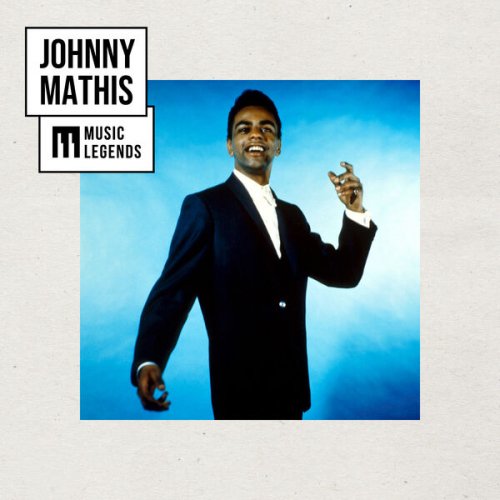

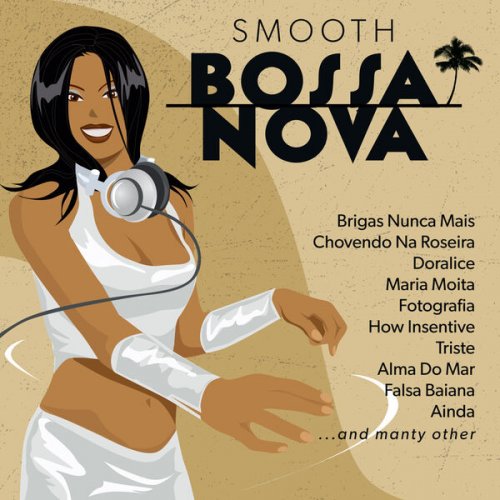
![Cheo Feliciano - Mi Tierra y Yo (Remastered 2026) (2026) [Hi-Res] Cheo Feliciano - Mi Tierra y Yo (Remastered 2026) (2026) [Hi-Res]](https://img.israbox.com/img/2026-02/26/3utwbyq7th3hn4a5zsf7qsky1.jpg)
